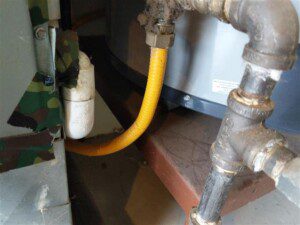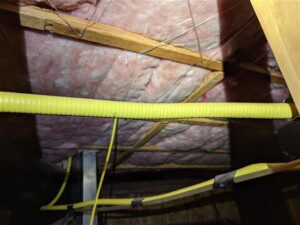
CSST is installed in around 500,000 new residences in the United States each year. However, standards governing how pipes are bonded and grounded did not go into effect until 2006 therefore, many older homes do not meet today’s safety standards. You should be aware of the known safety issues related to CSST if you live or work in a structure built between 1990 and 2006, or if gas line repairs were done around that time.
CSST gas piping products have been accused of having design and manufacturing flaws, putting houses in danger of lightning-caused fire damage. A class action lawsuit has already been filed in Florida against one CSST manufacturer, and it is likely that several other class action lawsuits will be filed as a result of assertions that all CSST devices have the same inherent design problems.

The concern with CSST is that it has a wall thickness of approximately .011 inches, compared to .113 inches for black iron pipes. CSST is said to have too thin a wall thickness to withstand the electrical energy produced by lightning strikes.
A CSST gas line system struck by lightning can cause a fire. A strike on or near a building can trigger a harmful power surge that can result in a gas leak or fire by traveling through the structure’s piping system.
If you have CSST in your home, we recommend that you have the system inspected by a qualified contractor to ensure that the home is properly grounded and the gas piping is properly bonded. Grounding will send any lightning strike into the ground, whereas direct bonding ensures electrical continuity and conductivity through metal pipes. Electrical shock, as well as a natural gas leak or fire, are reduced when your natural gas system is directly bonded.
